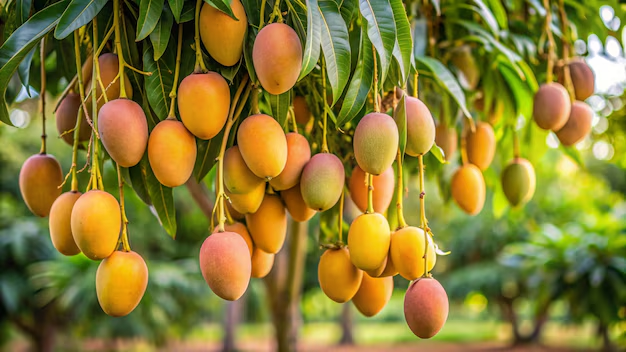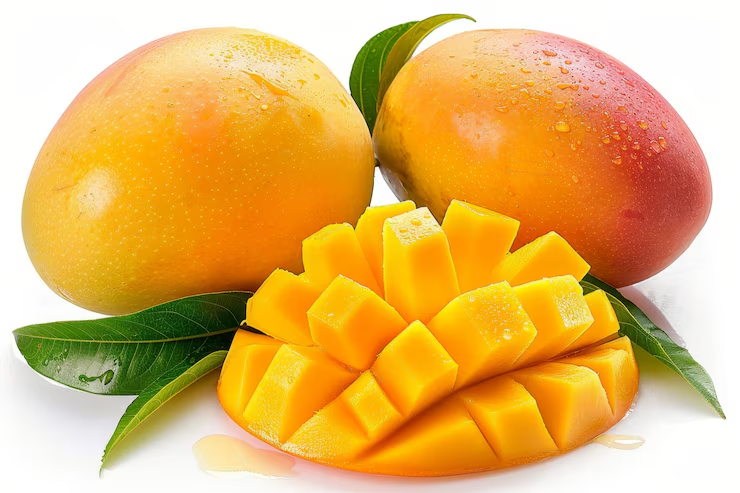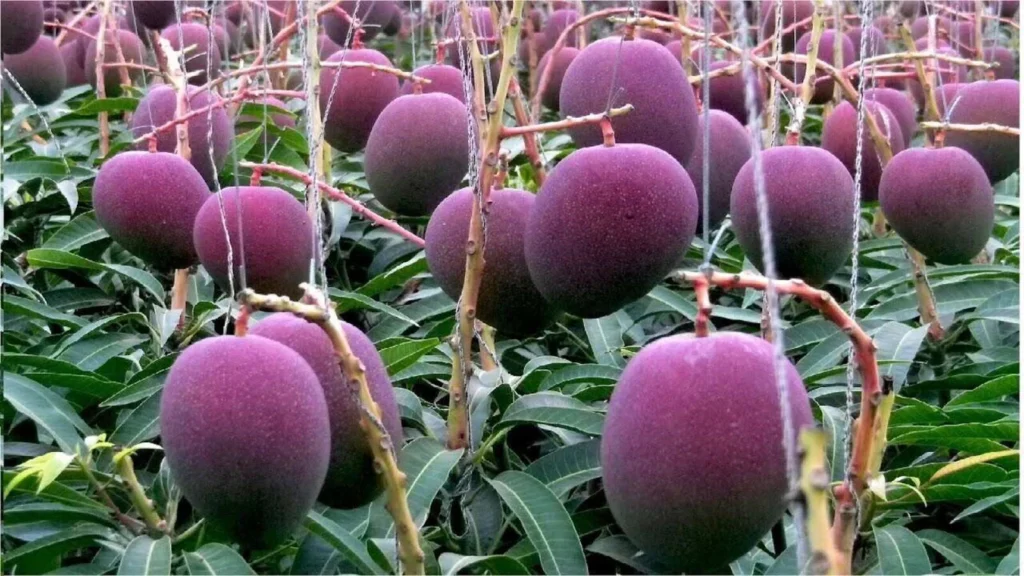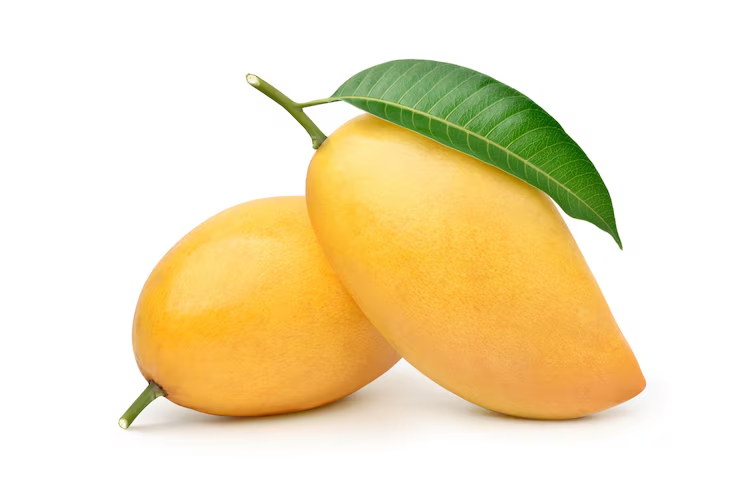Mango: The King of Fruits – Benefits and Nutrition

Mango, often revered as the “King of Fruits,” is one of the most popular and widely consumed fruits in the world. Known for its luscious taste, vibrant color, and rich aroma, mango holds a special place not just in culinary culture but also in traditional medicine and modern nutrition. Scientifically named Mangifera indica, the mango is native to South Asia but is now cultivated in many tropical and subtropical regions across the globe.
In addition to being delicious, mangoes are packed with essential nutrients, antioxidants, and bioactive compounds that contribute to numerous health benefits. This article explores the many dimensions of mango fruit—its nutritional value, health benefits, and how it can be incorporated into a healthy lifestyle.
Nutritional Value of Mango
Mangoes are not only tasty but also a nutritional powerhouse. A one-cup (165 grams) serving of sliced mango provides:
- Calories: 99
- Carbohydrates: 25 grams
- Sugars: 23 grams
- Dietary Fiber: 2.6 grams
- Protein: 1.4 grams
- Fat: 0.6 grams
Key Vitamins and Minerals:
- Vitamin C: 67% of the Daily Value (DV)
- Vitamin A: 10% of the DV
- Vitamin E: 9% of the DV
- Vitamin K: 6% of the DV
- Folate (Vitamin B9): 18% of the DV
- Potassium: 6% of the DV
- Magnesium: 4% of the DV
- Copper: 20% of the DV
Mangoes also contain small amounts of calcium, iron, and several B vitamins like B6 and niacin.
Health Benefits of Mango
1. Boosts Immunity
Mangoes are rich in vitamin C, a powerful antioxidant that helps protect against infections and strengthens the immune system. Just one cup provides nearly two-thirds of your daily vitamin C requirement. The vitamin A content also contributes to a healthy immune response and supports mucous membrane health.
2. Improves Digestive Health
Mango contains dietary fiber and enzymes such as amylases that help break down and digest carbohydrates more effectively. This can aid in relieving constipation, reducing bloating, and improving overall digestive function. The fiber content also promotes healthy gut flora.
3. Supports Eye Health
Mangoes are a good source of vitamin A and beta-carotene, both of which are essential for maintaining good vision. Regular consumption can help prevent dry eyes, night blindness, and even age-related macular degeneration.
4. Promotes Skin Health
The high levels of vitamin C and vitamin A in mangoes contribute to healthy, glowing skin. Vitamin C helps in the production of collagen, a protein that keeps skin firm and elastic. Mango’s antioxidants also help fight free radicals that cause premature aging.
5. Aids in Weight Management
Despite their natural sugar content, mangoes can be a healthy addition to a weight-loss diet when consumed in moderation. They are low in calories, rich in water and fiber, and help you feel full longer, reducing the tendency to overeat.
6. Supports Heart Health
The potassium and magnesium in mangoes help regulate blood pressure and maintain a healthy pulse. Additionally, mango contains antioxidants like mangiferin, which may reduce inflammation and oxidative stress, both of which are risk factors for heart disease.

7. Improves Brain Function
Mangoes contain vitamin B6, which is vital for cognitive development and neurotransmitter function. Additionally, mango’s antioxidants help protect the brain from oxidative damage, potentially reducing the risk of neurodegenerative diseases like Alzheimer’s.
8. Anti-Cancer Properties
Preliminary research suggests that mangoes may offer anti-cancer benefits due to the presence of polyphenolic compounds like quercetin, gallic acid, and mangiferin. These compounds have shown potential in inhibiting the growth of cancer cells and inducing apoptosis (cell death) in laboratory studies.
https://sypertimes.com/avocado-fruit-its-benefits-and-importance-for-health/
Antioxidants in Mango
Mango is rich in several types of antioxidants, which are compounds that protect cells from damage caused by free radicals. Key antioxidants in mango include:
- Mangiferin – Known for its anti-inflammatory and anti-cancer effects.
- Beta-carotene – A precursor to vitamin A with powerful antioxidant properties.
- Quercetin – Supports cardiovascular and immune health.
- Astragalin and isoquercitrin – Flavonoids that combat oxidative stress.
These antioxidants are primarily concentrated in the skin and flesh of the fruit, making fresh mangoes the best source for maximum benefits.
Types and Varieties
There are hundreds of mango varieties grown worldwide, each differing slightly in taste, texture, and color. Some of the most popular varieties include:
- Alphonso (India) – Rich, creamy, and aromatic; considered the gold standard.
- Ataulfo (Mexico) – Small, sweet, and buttery texture.
- Tommy Atkins (USA, Brazil) – Mild flavor, fibrous flesh; widely available.
- Kent and Keitt (USA, Peru) – Less fibrous, juicy, and sweet.
- Haden (USA) – Bright red and yellow; rich and aromatic.
Each variety offers unique flavor profiles and may vary slightly in nutritional content.

How to Include Mango in Your Diet
Mango is a versatile fruit that can be enjoyed in many ways:
- Fresh slices as a snack or dessert.
- Blended into smoothies, juices, or milkshakes.
- Added to fruit salads, salsas, or yogurt.
- Used in chutneys, sauces, or marinades.
- Incorporated into desserts like puddings, ice creams, and cakes.
For a refreshing treat, frozen mango chunks can be a healthy alternative to ice cream or sugary snacks.
Tips for Buying and Storing Mangoes
- Ripeness: A ripe mango will yield slightly to gentle pressure and emit a sweet aroma near the stem. Avoid overly soft or wrinkled fruits.
- Storage: Unripe mangoes can be ripened at room temperature. Once ripe, they can be stored in the refrigerator for up to 5 days.
- Cutting: To cut a mango, slice off the sides (cheeks) from the flat pit, then score the flesh in a crosshatch pattern and scoop it out with a spoon.
Precautions and Considerations
While mangoes are healthy, moderation is key:
- Sugar Content: Mangoes have a high natural sugar content, so people with diabetes should monitor their portions.
- Allergies: Some individuals may experience allergic reactions to mango skin due to urushiol, a compound also found in poison ivy.
- Gastrointestinal Issues: Overconsumption may cause digestive discomfort in some people, especially when eaten with other acidic fruits.

Conclusion
Mango is more than just a delicious tropical fruit—it is a nutrient-rich food with a multitude of health benefits. Whether you’re aiming to boost your immunity, improve your digestion, or simply enjoy a refreshing snack, mango offers a natural, tasty solution. Its richness in vitamins, antioxidants, and fiber makes it a smart addition to a balanced diet.
So the next time you enjoy a juicy mango, know that you’re not only treating your taste buds but also nourishing your body in the most delightful way possible.
https://www.thehindu.com/sci-tech/why-mango-is-the-king-of-fruits-in-india/article68211699.ece




